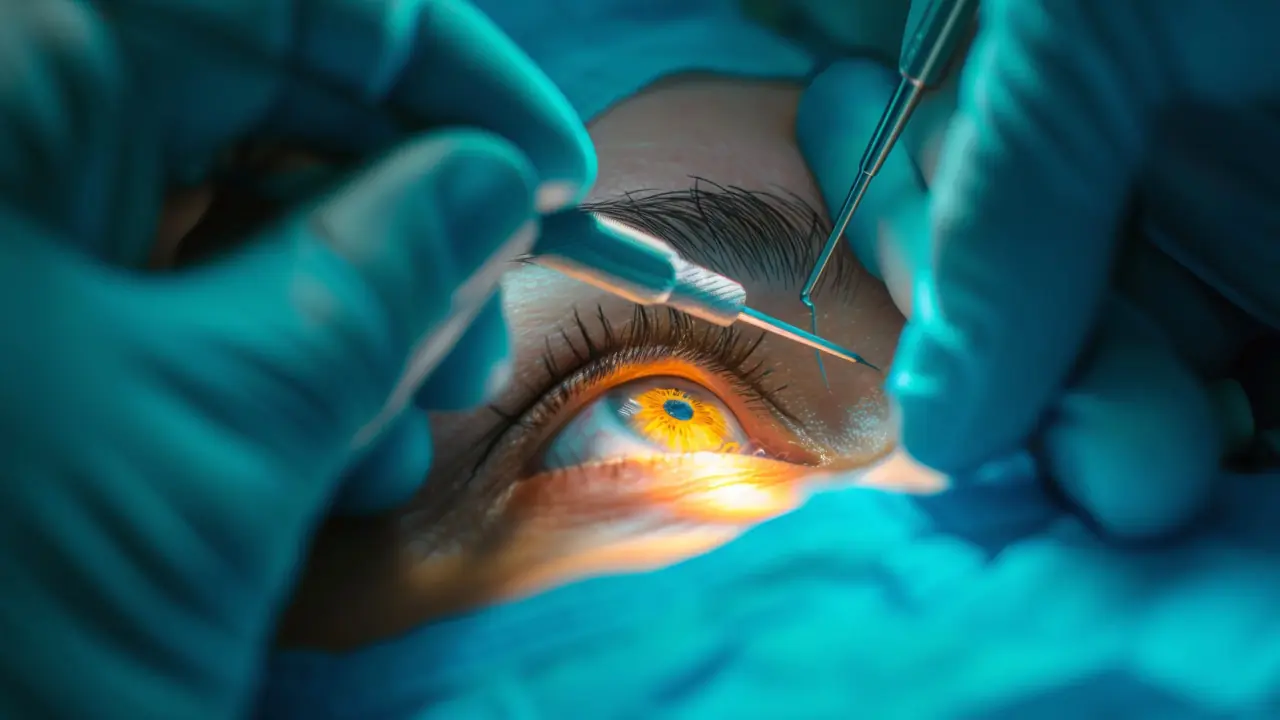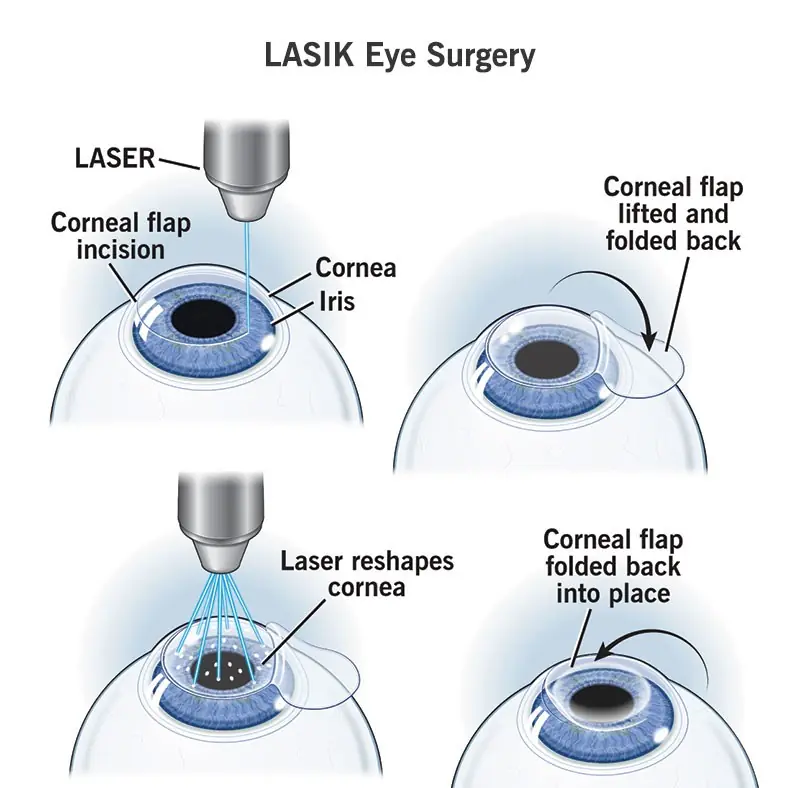Lasik Laser Surgery
LASIK involves raising a very thin corneal flap with the help of a special automated and very precise blade. After this the Excimer Laser treatment is applied to the rest of corneal surface to change its shape and thus correct the refractive error. The parameters used for conventional LASIK are based on the refractive error of the patient. The raised flap is then positioned. The bladeless Femto Laser (Intralase) LASIK raises a very thin, precise and regular flap and is safer and gives better quality of vision.

What is Presbyopia?
In a younger person, the lens has the capacity to increase its power to focus for nearer objects (accommodation). Presbyopia is a part of normal aging process, where the lens progressively loses this capacity of accommodation. The distance vision may be normal, but the near vision becomes blurred with age greater than about 40-45 years. This is corrected by wearing reading glasses (plus) for the near work. One must remember that refractive laser surgeries only correct the refractive error (myopia, hypermetropia and astigmatism), but do not correct the presbyopia.
What are the various Laser treatments available?
The most common options available are:
- PRK: It is being used less commonly nowadays.
- LASIK:This is the most popular form of Laser treatment.
- SMILE:This is a new treatment option that is evolving.
What is Customised and Aspheric LASIK?
These are special forms of LASIK in which the treatment parameters are customised for the particular patient, based not only on the refractive error, but also on the corneal map of the eye and other findings detected by special tests. This procedure tries to correct aberrations, maintains normal aspheric shape of the cornea and gives better quality of vision especially in dim light.
Who is a suitable candidate for LASIK laser surgery?
The person must be 18 years or older with a stable power. A contact lens user must discontinue the use of contact lenses preferably 2 weeks before the procedure. A detailed eye checkup is done to look for suitability for the procedure. Before the Laser is done the eyes are checked with special machines to determine the exact power, the corneal mapping is done and corneal thickness is measured. In patients with high minus power, a special retinal checkup is done for detecting any possible weak areas in the retina, which may need to be treated before the LASIK is performed. The LASIK laser is performed only after ruling out any contraindication and confirming the suitability of the procedure.
Is there any other option for patients not suitable for LASIK?
In case the patient is not suitable for LASIK due to thin cornea, other options like Phakic lenses, ICL, Clear lens extraction with Multifocal IOL, PRK etc. may be considered after detailed checkup.
What happens during the Laser surgery?
The LASIK surgery is done as an outpatient procedure and does not require any admission. It is painless and is done after putting the anesthetic drops and does not require any injections. The laser procedure takes approximately 10-15 minutes for both eyes. After the procedure, the patient can go back home after 20-30 minutes.
What are the complications of LASIK?
LASIK is a very safe procedure with a majority of patients achieving very good results. However, since it is a surgical procedure, it does carry some chances of complications as well, which would be discussed with you before the surgery. The overall rate of significant complications in LASIK is only of the order of 1-2%. Some of these complications may be:
- Undercorrection or Overcorrection
- Infection
- Glare and difficulty in night driving
- Scarring of the cornea
- Flap complications, perforation
What are the precautions to be followed after LASIK, and when can one resume work?
After LASIK surgery one needs to avoid using cosmetics in and around the eye for a week or two. One should also avoid wetting or rubbing the eyes for some period. Use the medications regularly and report immediately in case of any discomfort, redness, injury or any other problem. There is no restriction in reading, watching TV, going for walks etc. In majority of cases, routine office or simple household work may be resumed in a day or two.
Will I need glasses after surgery?
Yes, you may require glasses, which are generally prescribed 4 weeks after the surgery. The power required is generally very small and is different for distance and near vision.

